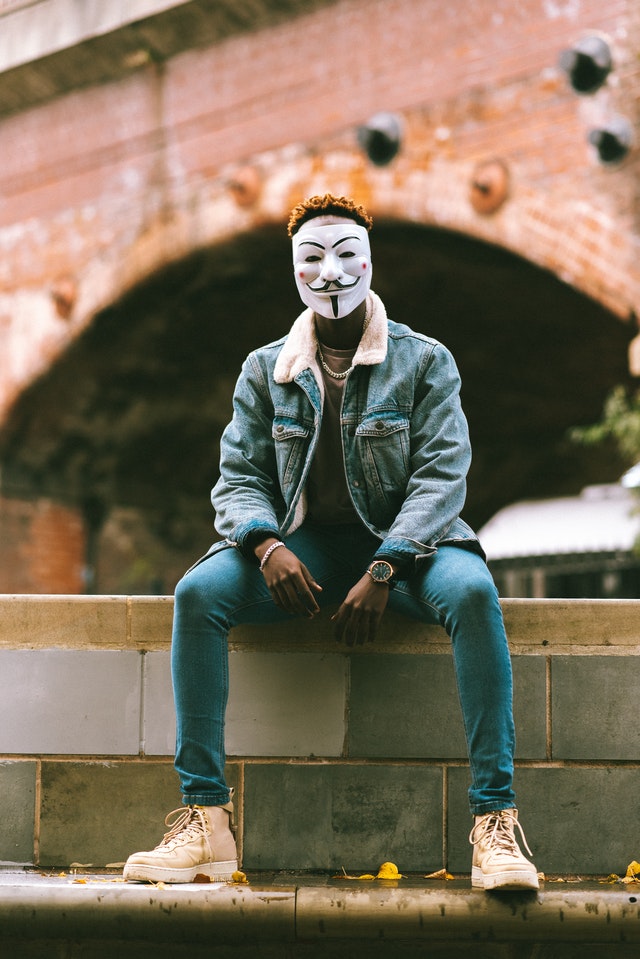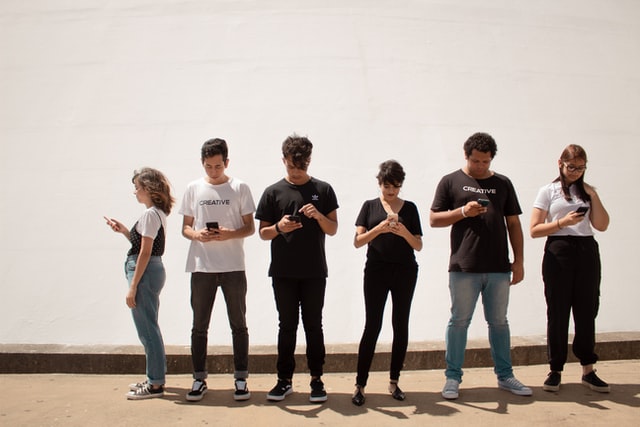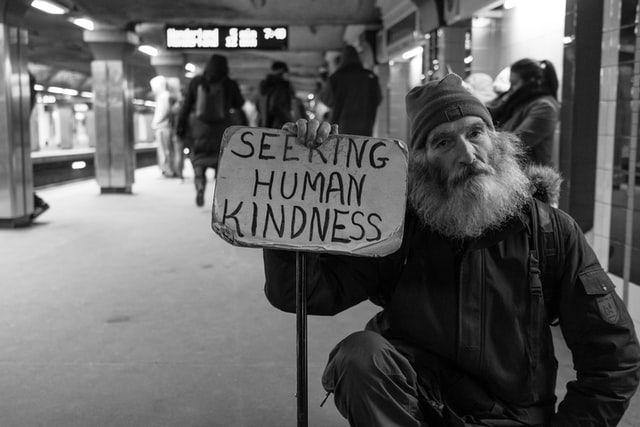Through the use of social media in our everyday lives, no doubt you’ve heard the term, ‘cancel culture’.
It’s a phenomenon that has spread through society at a rapid pace in the last decade.
But is canceling people for trespasses (perceived, or otherwise), really true justice?
In this article, we’ll explore cancel culture pros and cons, and possible alternatives.
What is Cancel Culture?
First, let’s start with a definition.
Cancel culture, also known as callout culture, is the practice of withdrawing support of an individual or company. This is often in response to an act of injustice or wrongdoing.
This withdrawal of support can take several forms. For instance, boycotting the products of a company, or refusing to support the artistic works of a famous performer.
Often the wrongdoing of the accused is made public through social media platforms. Their actions are then judged and their fate is decided by the users.
What does Cancel Culture do?
There are a few times that callout culture has affected social change, such as the Black Lives Matter movement.
The movement highlights and condemns the violent treatment of black men in America by police officers. It started through the sharing of footage on social media.
Besides high profile examples like these, where social and political leaders are called out, it can also affect everyday people.
A woman, Justine Sacco, posted a controversial tweet before getting on a plane to South Africa.
While she was on the flight, the tweet became viral and she was heavily condemned, resulting in her being fired before the plane landed.
The Cancel Culture Debate: Cancel Culture Pros and Cons

There is an ongoing debate on the effectiveness and morality of Cancel Culture.
The fact that social media had lost a woman her job before her plane landed (and before she could defend or apologize for it) was controversial.
The detractors claim that cancel campaigns are a form of severe online bullying. And it does not encourage open discussions and chances of repentance.
Supporters of callout culture believe that past racist comments should not go unpunished. And that they are an effective deterrent to wrongful behavior.
Many speaking engagements have been held in support of both opinions.
Let’s look at both the pros and cons.
The Pros
What Are The Advantages of Cancel Culture?
Many believe that callout culture allows individuals and businesses to be accountable for their wrongdoings.
Some claim that this phenomenon was always alive in some form throughout history.
Leaders of the American civil rights movement, held boycotts to great effectiveness.
It can also be effective where the justice system fails. It can lead to awareness of social issues that had not been public knowledge previously.
Let’s explore the reasons given for the support of this societal culture and practice.
1. It Allows Justice for Marginalized People
Marginalized groups of people have often suffered in silence because of the failures of the justice system.
These traditional bastions of justice sometimes do not do enough for the people. Especially for victims of sexual assault and systemic racism.
The crimes of Hollywood producer Harvey Weinstein, and Olympic gymnastics doctor Larry Nassar against countless women and girls, went unpunished for years.
But through social media movements, such as the #MeToo Movement, the victims could finally see their perpetrators punished.
Without this phenomenon, these victims might have still been silenced.
2. The Public Platform of Social Media Means Everyone Has a Voice

A reason everyday people might deem Cancel Culture good is because of the platform it stemmed from.
Social media is accessible to everyone with a device and internet access. That means that everybody can find an audience for their thoughts and concerns.
Therefore, callout culture doesn’t have to be started by social and political leaders. Anyone’s outrage can be heard and addressed if it gets a high amount of attention.
The voice of the people can be used to spread awareness of harmful actions of companies, celebrities, and other individuals.
Related: Why Do People Post on Social Media – 14 Reasons
3. It Can Be An Educational Moment for Observers
The struggles of marginalized people can be brought into the spotlight for thousands to see.
Social media’s ability to signal boost offensive behavior, leads to hundreds of witnesses who are in favor of the victims.
There have been instances of racial discrimination on college campuses, for example. Every device nowadays can record this behavior and bring justice to victims. This is why some would call cancel culture good.
Thousands of people local and abroad can discuss why a behavior was bad and how to react. This opens discussions about mistreatment and marginalization.
4. It Brings Awareness to Social Issues
Speaking of callout culture being a teaching moment, it can bring awareness to social issues. And it has the potential to affect social change for the better.
Issues such as systemic racism or discrimination against people of a different sexual orientation can be brought to public knowledge.
Even in democratic societies, people systematically exclude others. These issues often fall under the radar and are ignored.
But thanks to social media, even problematic behavior from decades ago can be brought to light.
But let’s not praise this culture just yet, before looking at the cons.
The Cons
What Are The Negative Effects of Cancel Culture?
On the other hand, many people are against callout culture, which they see as a new form of mob justice.
The cons are just as numerous as the pros. In many cases, callout culture can be a force for good.
But the idea of the public being the judge, jury and executioner of anyone they deem wrong is a slippery slope, some argue.
Let’s explore why.
1. It Leads to Online Bullying and Threats of Violence
Many cancel campaigns have proved to be destructive. In some cases, violence is incited against people who have a different opinion.
And some campaigns have even proved to be misguided or hypocritical.
One example of a con is when Bob Unanue, the CEO of Goya Foods Inc., spoke words of praise for former US President Trump.
Liberal Latino leaders organized a boycott, which may have also affected the many Latino Goya employees negatively.
In the company’s defense, many argued that Unanue was practicing free speech.
And that a similar uproar wasn’t heard when he had shown support for former President Obama during his term.
2. It Does Not Bring Actual Productive Social Change

Social and political leaders may sing the praises of callout culture. But there are many cases in which the campaigns did not actually bring about true social change.
It simply amounted to online bullying of famous (and regular) people on social media.
When the case is politically motivated, the opposing party will often cancel out the attempts at organizing boycotts of companies.
Social media’s ability to spread one-sided or harmful accusations is also unchecked. This results in unproductive judgements and debates.
3. It Leads to Intolerance and Division
Cancel campaigns are often divisive, especially when the nature of the accusation is up for debate.
Leaving judgment to public opinion often results in heated political debates. Some groups may even incite violence against others.
Absolute judgements without giving the opportunity for discussion is a slippery slope.
Many political leaders have condemned this culture. They claim that it threatens the right to free speech of the people.
4. The Actual Repercussions And Results Vary
Another reason why callout culture can be viewed negatively is because the results are often skewed. And it depends on the reputation of the accused.
For example, cancel campaigns against public figures, such as singer R. Kelly, had an opposite effect of the cultural boycott intended. His albums and songs saw a surge in sales, and he received much praise from fans.
Unfortunately, non-famous people are not affected in the same way.
They may not see legal ramifications, as some prominent figures have, but their reputations are ruined. They often lose their jobs, and they may even be harassed in public.
5. The Ever-Moving Goalpost of Right And Wrong
The problem with social media’s ability for people to call out public figures, is that the moral standards are often subjective and based on opinion over fact.
Social media is a bastion of free speech. This means that not everyone will have the same opinion. Even of businesses deemed offensive, for example.
When a person’s perceived offense is deemed objectionable, public support (whether to give it, or take it away) is up to debate.
In many cases, cancel claims have been proven wrong, years or months later, after the accused has suffered.
How Does Cancel Culture Affect Mental Health?
It is evident that while Cancel Culture can help many people, it also has the power to hurt many people.
Social media itself has been a factor in decreasing mental health, and callout culture may be a major reason for it.
Social media’s ability to allow people to scan your past and judge, could lead to a heightened paranoia of saying, or doing, the ‘wrong thing,’ which can lead to unnecessary guardedness.
What is The Solution or Alternative?

So what is a possible solution to curb the negative effects of callout culture, while also helping victims of society?
In the process of cancelling people, the “cancelers” often silence them, and treat them as one-dimensional people.
They refuse to see them as people open to growth and change.
In the spirit of free speech, it can help to show compassion to those who have done offenses, and allow them to seek accountability.
It’s important to remember that in Cancel Culture, nobody is truly safe.
And the same things you may be praised for today, could be what condemns you tomorrow.
Related: 101 Things to Let Go Of to Find Happiness
FAQs
Call-Out Culture vs Cancel Culture – What’s the difference?
The operation of the two is similar, and we have used them interchangeably in this article. Callout culture has a subtle difference to cancel culture.
The former allows the chance for the accused to be accountable, while the latter aims to shut them down completely.
Why is cancel culture, by anyone, harmful and wrong?
It can be considered harmful in a lot of cases where the standard of judgment is not based on the actual law.
In other words, it could affect those who say or do something unpopular, but not necessarily unlawful.
In democratic societies, the right to free expression would be respected, as long as laws are upheld.
Thanks for stopping by and reading my guide. Share this piece if you found it informative or interesting!
